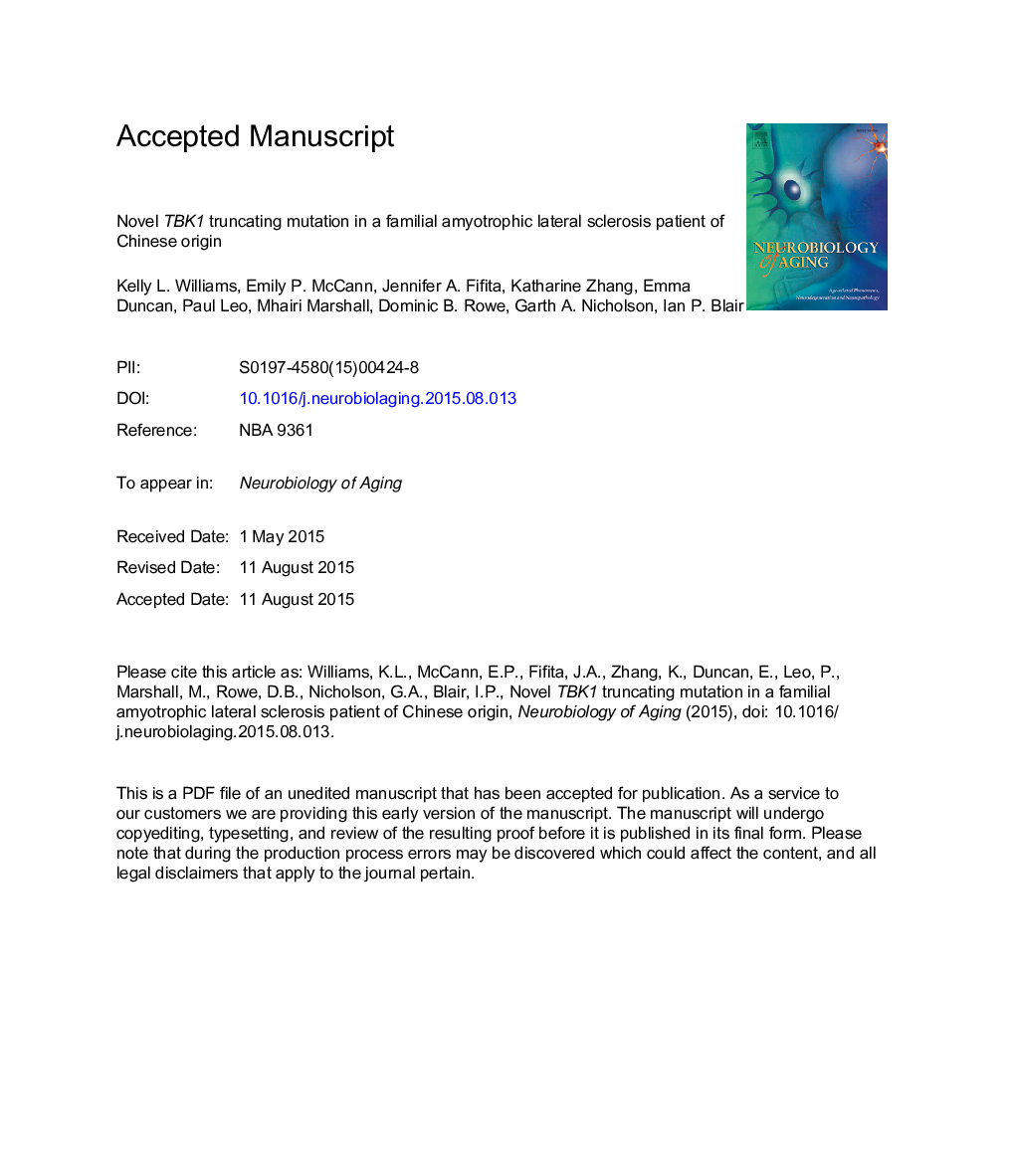| Article ID | Journal | Published Year | Pages | File Type |
|---|---|---|---|---|
| 6803792 | Neurobiology of Aging | 2015 | 19 Pages |
Abstract
Missense and frameshift mutations in TRAF family member-associated NF-kappa-B activator (TANK)-binding kinase 1 (TBK1) have been reported in European sporadic and familial amyotrophic lateral sclerosis (ALS) cohorts. To assess the role of TBK1 in ALS patient cohorts of wider ancestry, we have analyzed whole-exome sequence data from an Australian cohort of familial ALS (FALS) patients and controls. We identified a novel TBK1 deletion (c.1197delC) in a FALS patient of Chinese origin. This frameshift mutation (p.L399fs) likely results in a truncated protein that lacks functional domains required for adapter protein binding, as well as protein activation and structural integrity. No novel or reported TBK1 mutations were identified in FALS patients of European ancestry. This is the first report of a TBK1 mutation in an ALS patient of Asian origin and indicates that sequence variations in TBK1 are a rare cause of FALS in Australia.
Related Topics
Life Sciences
Biochemistry, Genetics and Molecular Biology
Ageing
Authors
Kelly L. Williams, Emily P. McCann, Jennifer A. Fifita, Katharine Zhang, Emma L. Duncan, Paul J. Leo, Mhairi Marshall, Dominic B. Rowe, Garth A. Nicholson, Ian P. Blair,
